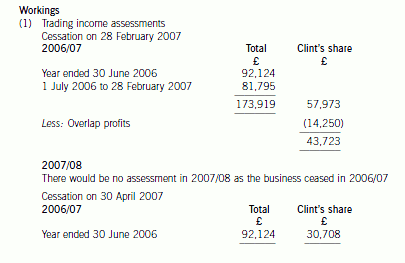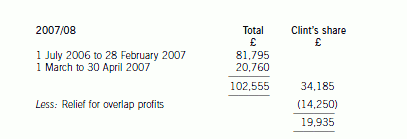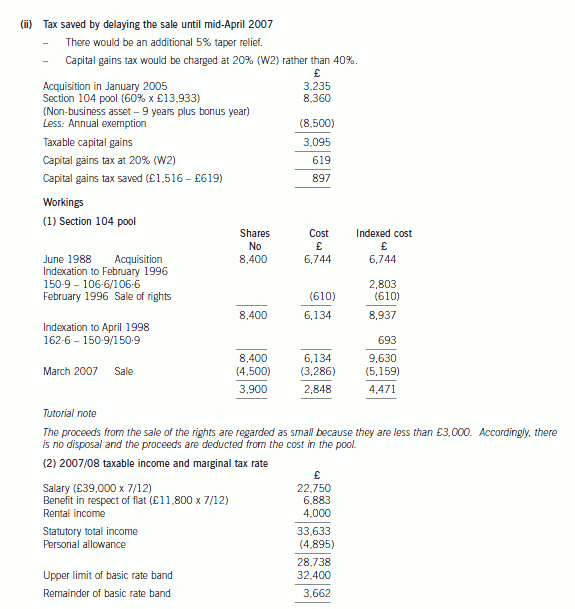ACCA免考需要缴纳报名费用吗?
发布时间:2021-06-03
随着ACCA在国内的普及程度越来越高,越来越多的中国考生在报考ACCA的时候发现自己能免考那么几门ACCA科目。尽管能够申请获得免考资格,但是免考科目还是需要缴纳一笔免考费用的,无法减免,接下来就和51题库考试学习网一起去了解下吧!
ACCA在中国设立的免试政策,主要分为四大类,具体如下:
一、ACCA对中国教育部认可的全日制大学在读生(会计或金融专业)设置的免试政策:
1.会计学或金融学(完成第一学年课程):可以注册为ACCA正式学员,无免试。
2.会计学或金融学(完成第二学年课程):免试3门课程(BT-FA)。
3.其他专业(在校生完成大一后):可以注册但无免试。
二、ACCA对中国教育部认可高校毕业生设置的免试政策:
1.会计学(获得学士学位):免试5门课程(BT-LW,TX)
2.会计学(辅修专业):免试3门课程(BT-FA)
3.金融专业:免试5门课程(BT-LW,TX)
4.法律专业:免试1门课程(LW)
5.商务及管理专业:免试1门课程(BT)
6.MPAcc专业(获得MPAcc学位或完成MPAcc大纲规定的所有课程、只有论文待完成):原则上免试九门课程(BT–FM),其中TX(税务)的免试条件:CICPA全科通过或MPAcc课程中选修了“中国税制”课程。
7.MBA学位(获得MBA学位):免试3门课程(BT-FA)
8.非相关专业:无免试
三、注册会计师考生:
1.2009年CICPA“6+1”新制度实行之前获得CICPA全科通过的人员:免试5门课程(BT-LW,TX)
2.2009年CICPA“6+1”新制度实行之后获得CICPA全科通过的人员:免试9们课程(BT-FM)
3.如果在学习ACCA基础阶段科目的过程中获得了CICPA全科合格证(须2009年“6+1”制度实行后的新版证书),可以自行决定是否申请追加免试。
四、其他
1.CMA(美国注册管理会计师)全科通过并取得证书:免试BT-FA
2.USCPA(美国注册会计师)全科通过:免试BT-TX、AA、FM(共免8门)
3.申请牛津布鲁克斯大学的学士学位,不需要出具相关英文水平证明,如CET-6,TOEFL 500分,IELTS 6.5分,没有英语证明,则不能申请1.3的免试。
4.已经获得大学学历非在校人员,只要年满21周岁即可通过成人途径(MSER)注册成为ACCA学员,但不能申请任何科目的免考。
5.学员必须通过整年的课程才能够申请免试。
以上就是51题库考试学习网给大家分享的全部内容,希望能够帮到大家!后续请大家持续关注51题库考试学习网,51题库考试学习网将会为大家持续更新最新、最热的考试资讯!
下面小编为大家准备了 ACCA考试 的相关考题,供大家学习参考。
(ii) Analyse the effect of delaying the sale of the business of the Stiletto Partnership to Razor Ltd until
30 April 2007 on Clint’s income tax and national insurance position.
You are not required to prepare detailed calculations of his income tax or national insurance liabilities.
(4 marks)
(ii) The implications of delaying the sale of the business
The implications of delaying the sale of the business until 30 April would have been as follows:
– Clint would have received an additional two months of profits amounting to £6,920 (£20,760 x 1/3).
– Clint’s trading income in 2006/07 would have been reduced by £13,015 (£43,723 – £30,708), much of which
would have been subject to income tax at 40%. His additional trading income in 2007/08 of £19,935 would all
have been taxed at 10% and 22%.
– Clint is entitled to the personal age allowance of £7,280 in both years. However, it is abated by £1 for every £2
by which his total income exceeds £20,100. Once Clint’s total income exceeds £24,590 (£20,100 + ((£7,280
– £5,035) x 2)), his personal allowance will be reduced to the standard amount of £5,035. Accordingly, the
increased personal allowance would not be available in 2006/07 regardless of the year in which the business was
sold. It is available in 2007/08 (although part of it is wasted) but would not have been if the sale of the business
had been delayed.
– Clint’s class 4 national insurance contributions in 2006/07 would have been reduced due to the fall in the level
of his trading income. However, much of the saving would be at 1% only. Clint is not liable to class 4 national
insurance contributions in 2007/08 as he is 65 at the start of the year.
– Changing the date on which the business was sold would have had no effect on Clint’s class 2 liability as he is
not required to make class 2 contributions once he is 65 years old.


(ii) Advise Benny of the amount of tax he could save by delaying the sale of the shares by 30 days. For the
purposes of this part, you may assume that the benefit in respect of the furnished flat is £11,800 per
year. (3 marks)

(ii) How existing standards could be modified to meet the needs of SMEs. (6 marks
(ii) The development of IFRSs for SMEs as a modification of existing IFRSs
Most SMEs have a narrower range of users than listed entities. The main groups of users are likely to be the owners,
suppliers and lenders. In deciding upon the modifications to make to IFRS, the needs of the users will need to be taken
into account as well as the costs and other burdens imposed upon SMEs by the IFRS. There will have to be a relaxation
of some of the measurement and recognition criteria in IFRS in order to achieve the reduction in the costs and the
burdens. Some disclosure requirements, such as segmental reports and earnings per share, are intended to meet the
needs of listed entities, or to assist users in making forecasts of the future. Users of financial statements of SMEs often
do not make such kinds of forecasts. Thus these disclosures may not be relevant to SMEs, and a review of all of the
disclosure requirements in IFRS will be required to assess their appropriateness for SMEs.
The difficulty is determining which information is relevant to SMEs without making the information disclosed
meaningless or too narrow/restricted. It may mean that measurement requirements of a complex nature may have to be
omitted.
There are, however, rational grounds for justifying different treatments because of the different nature of the entities and
the existence of established practices at the time of the issue of an IFRS.
声明:本文内容由互联网用户自发贡献自行上传,本网站不拥有所有权,未作人工编辑处理,也不承担相关法律责任。如果您发现有涉嫌版权的内容,欢迎发送邮件至:contact@51tk.com 进行举报,并提供相关证据,工作人员会在5个工作日内联系你,一经查实,本站将立刻删除涉嫌侵权内容。
- 2020-09-03
- 2020-09-03
- 2020-01-08
- 2020-01-10
- 2020-01-09
- 2021-01-13
- 2021-01-01
- 2021-04-17
- 2020-09-03
- 2020-09-03
- 2021-03-28
- 2020-01-10
- 2020-09-03
- 2020-01-09
- 2020-04-18
- 2020-08-13
- 2020-01-13
- 2020-04-17
- 2020-10-30
- 2020-01-09
- 2020-01-10
- 2020-01-10
- 2021-01-13
- 2020-02-27
- 2021-04-24
- 2020-02-26
- 2020-04-18
- 2021-04-02
- 2020-01-10
- 2020-01-08